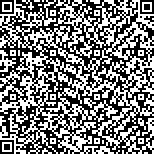本文已被:浏览 928次 下载 624次
Received:July 22, 2019 Published Online:June 20, 2020
Received:July 22, 2019 Published Online:June 20, 2020
中文摘要: 目的 探讨术前磁共振多征象分析对乳腺癌新辅助化疗(NAC)后结局的预测价值,并对患者新辅助化疗术后复发情况进行队列随访。方法 对2012年6月至2015年6月76例行NAC乳腺癌患者的临床资料进行回顾性分析。采用Miller-Payne病理反应性分级标准,将乳腺癌患者NAC结局分为病理完全缓解(PCR)及非完全缓解(NPCR)。以单因素比较PCR组与NPCR组患者临床病理资料及术前磁共振影像学资料的差异,以Logistic回归多因素分析乳腺癌患者NAC结局的独立预测因素。对患者术后进行队列随访,建立Cox比例风险回归模型对乳腺癌术后早期复发(36个月)进行单因素和多因素分析。结果 76例乳腺癌患者NAC完成后,最终获得PCR 21例、NPCR 55例。PCR组与NPCR组各资料单因素分析显示,Ki-67、分子亚型、瘤周水肿、环形强化征象存在统计学差异(P<0.01)。Logistic回归多因素分析显示,乳腺癌分子亚型(OR=3.294,P=0.035)、瘤周水肿(OR=8.939,P=0.016)、环形强化(OR=13.333、P=0.012)是乳腺癌患者接受NAC后PCR的独立预测因素。COX多因素分析显示,瘤周水肿(HR=6.796,P<0.01)是乳腺癌术后复发的危险因素;NAC后PCR(HR=0.036,P<0.01)是乳腺癌术后复发的保护因素。结论 术前磁共振征象对乳腺癌患者NAC后PCR以及术后早期复发具有重要预测价值。
Abstract:Objecitve To explore the predictive value of preoperative MRI multi-sign analysis on the outcome of breast cancer after neoadjuvant chemotherapy (NAC) and the impacts on the recurrence of patients after NAC. Methods A retrospective analysis was made on the clinical data of 76 breast cancer patients treated with NAC from June 2012 to June 2015.According to pathological response assessment by Miller-Payne grading system, the patients were divided into pathological complete remission (PCR) group and incomplete remission (NPCR) group.The differences of clinicopathological data and preoperative MRI data were compared between PCR group and NPCR group, and the independent predictors of NAC outcome were analyzed by multivariate logistic regression.With following up in a cohort of the patients and establishment of Cox proportional hazards regression model, single-factor and multi-factor analysis were performed to analyze the influence factors of the early recurrence (36 months) of breast cancer. Results After NAC, there were 21 cases of PCR and 55 cases of NPCR.Single factor analysis showed that there were significant differences in Ki-67, molecular subtypes of breast cancer, peritumoral edema and ring enhancement on MRI between two groups (P<0.01).Logistic regression analysis showed that molecular subtypes (OR =3.294, P=0.035), peritumoral edema (OR =8.939, P=0.016), ring enhancement (OR =13.333, P=0.012) were the independent predictors of PCR in breast cancer patients after NAC.Cox multivariate analysis showed that peritumoral edema (HR=6.796, P<0.01) was a risk factor for postoperative recurrence of breast cancer, and PCR after NAC was the protective factor for breast cancer (HR=0.036, P<0.001). Conclusion Preoperative MRI is of great value in predicting PCR and early recurrence of breast cancer patients after NAC.
文章编号: 中图分类号: 文献标志码:A
基金项目:
| Author Name | Affiliation |
| XU Bin-sheng, LU Zhi-yan | Department of Radiology, Zhongnan Hospital of Wuhan University, Wuhan, Hubei 430071, China |
| Author Name | Affiliation |
| XU Bin-sheng, LU Zhi-yan | Department of Radiology, Zhongnan Hospital of Wuhan University, Wuhan, Hubei 430071, China |
引用文本:
